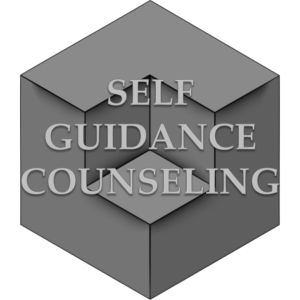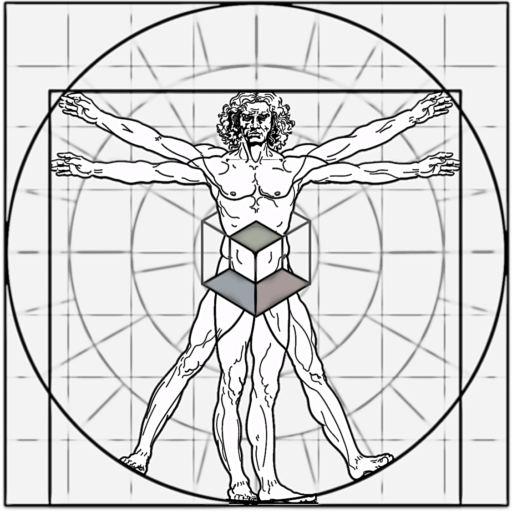Health and Wellness Coaching
for children, teens, and young adults
Identify and Organize Goals
Improve Mindset and Motivation
Increase Self-Efficacy and Awareness

What
Do you want to focus on?
Why
Is it important to you?
How
How can we help you succeed?
Welcome to Self-Guidance Counseling!
Self-Guidance Counseling is a action-based approach to mental and behavioral wellbeing. As a health and wellness coach, I provide a relationship that encourages self-directed action and supports individuals through a process of self-exploration, discovery, and growth. Collaborating together, we’ll explore your interests, personal strengths, and current challenges. We’ll identify your priorities, determine key behaviors, and create weekly action-steps to guide you along the way to accomplishing your goals and becoming a better version of yourself!
Unsure if Self-Guidance Counseling is right for you or your child? Don’t hesitate to contact me for free consultation!
Working Together
- Meet weekly/bi-weekly
- 30 – 90 minute sessions
- In-person, or virtual/by phone
- Sliding payment scale
Specific Focus
Cover one or two topics in-depth
Focus on practicing key behaviors and working towards an outcome
- Overcoming a challenge
- Improving a habit or changing a behavior
- Learning a new skill
- Accomplishing a goal
- Completing a long-term project
Open-ended Focus
Explore a wide range of topics
Focus on collaborative discussion and experimenting with weekly action-steps
- Low motivation
- Mild anxiety
- Unhealthy lifestyle
- “Stuckness” or lack of direction
- General self-improvement
General Categories of Services
Cognitive and Mental Health
Focus and Concentration
Improve concentration
Stay focused for longer
Avoid or ignore distractions
Reduce Stress and Anxiety
Reduce overall tension
Manage stressful situations
Face your fears
Learning and Studying
Improve strategies for learning
Apply knowledge more efficiently
Study or prepare for a major project
Improve Mindset
Move from a fixed to growth mindset
Change negative self-image
Improve optimism and outlook
Deepen Mindfulness
Quiet your mind
Increase inner peace
Deepen thoughtfulness
Finding Meaning / Purpose
Find your true purpose or calling
Explore the meaning of life
Strive for your full potential
Physical and Behavioral Health
Exercise
Personalized workout programs
Tracking and progression
Accountability and motivation
Nutrition
General nutrition counseling
Meal planning and prep
Smart grocery shopping
Golden Behaviors
Do more of what makes you feel best
Use behavior more effectively
Learn to find the fun in what you do
Improve Habits
Improve healthy habits
Reduce harmful habits
Improve self-discipline and control
Sleeping and Energy
Improve sleeping habits
Increase energy
Reduce lethargy/restlessness
Recovery and Maintenance
Recovery from injury or illness
Protect against/prevent future injury
Maintain appropriate levels of health/fitness
Social and Emotional Health
Emotional IQ
Increase emotional intelligence
Reduce emotional reactivity
Practice appreciative communication
Build Resilience
Reframe negative situations
Persevere through hardship
Turn an obstacle into the path forward
Mood and Motivation
Improve your overall mood
Decrease general apathy
Find your fire
Healthy Relationships
Improve relationships
Deepen your connection with others
Become comfortable with intimacy
Gratitude and Connection
Make gratitude a habit
Enjoy the present moment
Experience radical amazement
Personality and Character
Learn about personality types
Discover your unique qualities
Empower your character strengths
Life Management Skills
Time Management and Scheduling
Task prioritization
Setting up a schedule
Structuring time to improve productivity
Finances/Budgeting
Managing money
Creating and sticking to a budget
Responsible spending and saving
Employment
Resume work
Finding/keeping a job
Internships/volunteerism
Independent Living
Learning "Adulting" skills
Upkeep, chores, and responsibilities
Systems and routines
Practical Skill Improvement
Identify and encourage points of improvement
Deliberate practice
Feedback and accountability
Life Transitions
Preparing for college and beyond
Moving/changing schools/dramatic change
Major life milestones
More Information
About Self-Guidance Counseling
My Methodology
Coaching is about meeting a person 'where they are' and helping them get to 'where they want to be'. Rather than following a pre-determined script, I do my best to adapt my approach to fit the needs and preferences of each client I work with. Over the first 2 - 4 weeks of working with a new client, my intentions are to:
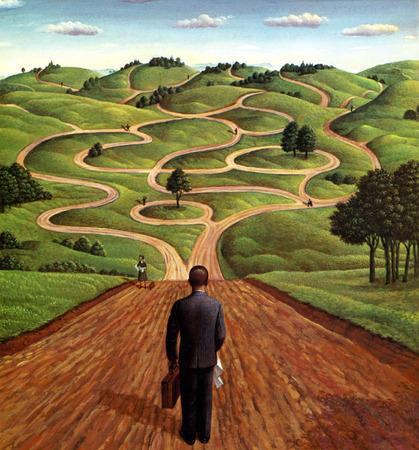
SGC Methodology
The most important part of coaching is the ‘coaching relationship’ itself. My first priority when meeting with a new client is to establish a foundation of trust, understanding, and support. To do this, I need to build clarity about the expectations of the client, the challenges they’re facing, and their preferences for working together. This process will happen naturally as we get to know one another.
While getting to know one another, we’ll spend some time talking about who you “are” and who you “want to be.” If you don’t already have an idea of what you want to work on together, we’ll discuss your interests, strengths, values, and challenges. Our aim at this stage is to identify at least one point of focus–something important to you that you want to change or improve.
For each point of focus identified, we’ll consider the status quo of your current situation. We’ll then look ahead to the future and determine where you’d like to be at various intervals of time (i.e., 1 month from now, 6 months from now, etc.). This creates an estimated roadmap that will help guide our efforts as we move forward. Depending on the specific nature of each point of focus, we can create a scaffold of smaller goals that serve as stepping stones towards the completion of a larger goal.
For each point of focus, we’ll want to identify at least one behavior or action that is directly related to the advancement or completion of one of your goals, and is within your control. We’ll evaluate your immediate priorities each week, and set actions-steps for you to complete on your own. If you are unsure of what you need to do to accomplish your goals, we’ll experiment with different behaviors and strategies until we find something that works for you.
Setting weekly action-steps and working with feedback through collaborative discussion, you will build awareness of your mental and behavioral tendencies, as well as learn which strategies are most effective for you. With this growing self-awareness comes an increased sense of agency; as you gain more control over your thoughts and your behavior, you will feel more in control of your life.
My Guiding Principles
Because everyone's wellness journey is unique, I avoid emphasizing any single approach, technique, or structure. Instead, I follow a set of guiding principles:
- Anything is better than nothing
- The more you do something the easier it gets
- Choose your hard
- Everything is connected

Guiding Principles
Doing anything, no matter how little, is always better than doing nothing. People often talk themselves out of doing something positive by thinking to themselves “it’s too little to make a difference.” But that way of thinking is wrong. When it comes to wellbeing, every step makes a difference. Even if it doesn’t have an immediate effect, little steps add up to big changes over time, reshaping our thoughts, improving our habits, and aligning ourselves with our desired future. No matter how long the journey, we can only move one step at a time.
The more you do something the easier it gets, and the more likely you are to do it again in the future. This is the process through which our habits form, and it works both for and against us. It helps us develop the skills and abilities that shape our individual identities, but it also is how we form destructive patterns. This also means that the sooner we start something the easier it gets, and the longer we wait the harder it becomes. As said by Aristotle, “We are what we repeatedly do.” Make sure you practice the things you want to be good at, and avoid practicing the things you don’t.
Life is hard, that’s just a fact. It’s hard in different ways, at different times, and in different amounts, but hardship is a universal feature of life. People often try to avoid difficulty, and do what feels easiest at the moment. But easy actions, instant gratification, and avoiding challenges doesn’t lead to long-term growth and satisfaction. In fact, choosing the “easy way out” often leads to more hardship down the road. Instead of looking for the easy way, look for the hard that will be the most meaningful and rewarding in the long-run. And remember: if you don’t choose, someone else will choose for you.
Pull on one thread in your life, and you’ll find that it’s connected to everything else. Tension in one area of your life causes tension elsewhere. Likewise, taking care of or improving one aspect of your life will have a positive impact on the rest. Your overall wellbeing is more than just the sum of all the parts underneath. Wellness is about integration and balance–bringing all of the seemingly unconnected elements of your life together in harmony. The deeper the connection, the greater the sense of wellbeing.
About Health and Wellness Coaching
What is wellness?
Wellness is a comprehensive view of health and life-satisfaction that takes a 360-degree view of the individual and all of the factors that contribute to a “well-lived life.”
Far more than just the prevention of–or recovery from–illness or injury, wellness is about living a life aligned with your deepest values. It’s about connecting with your true self, finding meaning in your daily activities, and being fully present to the adventure of your life as it unfolds. Wellness is an active and engaged state. It is often experienced as a heightened sense of awareness and control, where one feels full of energy and purpose, yet also calm and at peace.
There are many definitions of wellness. An exact picture of wellness looks different for everyone, but for a general definition, I like to say that wellness is a deep and consistent alignment between what you think, what you do, and what you feel.
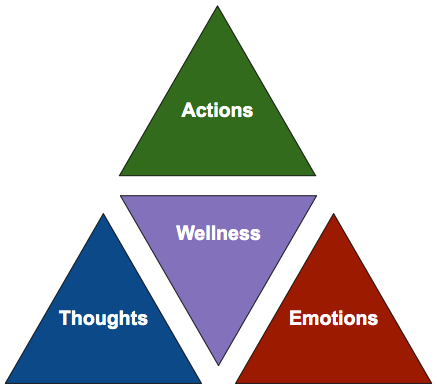
What you think: your thoughts
What you do: your actions
What you feel: your emotions
Wellness is not a passive or static state but rather an “active pursuit” that is associated with intentions, choices and actions as we work toward an optimal state of health and wellbeing.
-Global Wellness Institute
There is no consensus around a single definition of well-being, but there is general agreement that at minimum, well-being includes the presence of positive emotions and moods (e.g., contentment, happiness), the absence of negative emotions (e.g., depression, anxiety), satisfaction with life, fulfillment and positive functioning
-CDC definition
“To laugh often and much; to win the respect of intelligent people and the affection of children; to earn the appreciation of honest critics and endure the betrayal of false friends; to appreciate beauty; to find the best in others; to leave the world a bit better, whether by a healthy child, a garden patch or a redeemed social condition; to know even one life has breathed easier because you have lived. This is to have succeeded.”
-Ralph Waldo Emerson
“Wellness is not a static state. High-level wellness involves giving good care to your physical self, using your mind constructively, effectively, being creatively involved with those around you, and being concerned about your physical, psychological, and spiritual environments. In fact, it’s not so much where you are on the continuum, but which direction you’re facing.”
-(Travis & Ryan, Wellness Workbook)
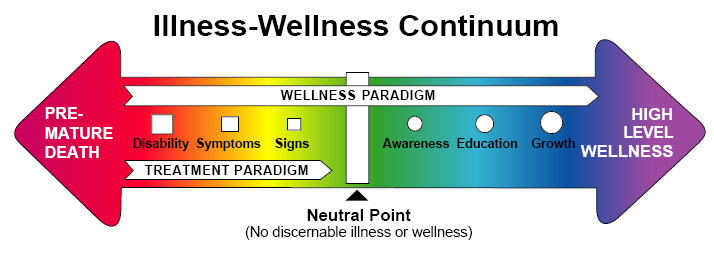
Some dimensions of wellness. How would you rate yourself along these dimensions?
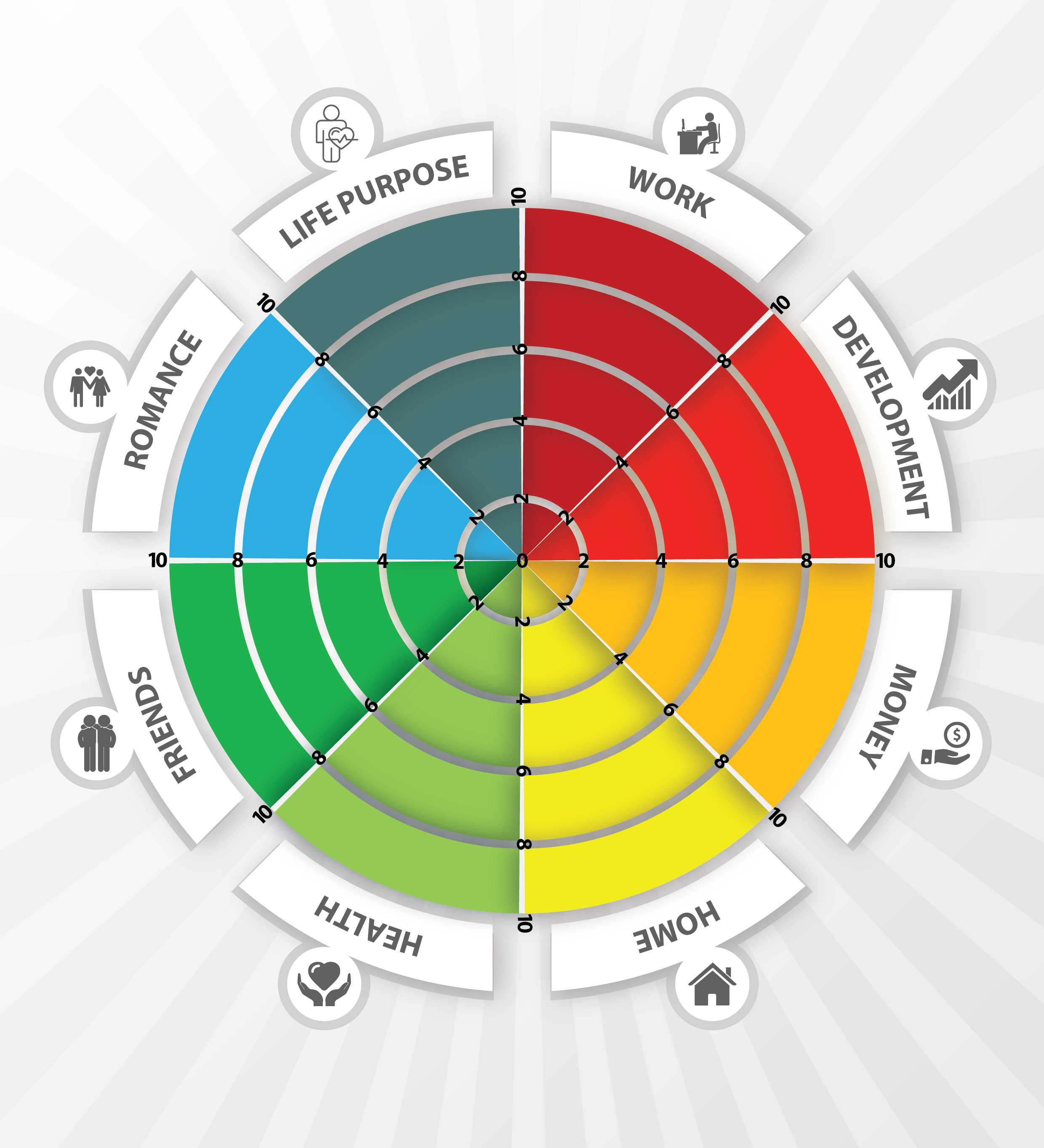
What is health and wellness coaching?
Health and wellness coaching is an interdisciplinary approach to well-being that builds on the principles of humanistic psychology and behavioral change science. More about asking the right questions than knowing the right answers, health and wellness coaching differs from more traditional “expert-centric” support paradigms. Instead of providing external solutions, coaches look to draw inner directions from their clients. Coaching also places an emphasis on taking action; clients are encouraged to pursue process or behavioral goals and to take consistent steps towards their desired future.
The coach approach is:
- Client-driven: What’s on your mind?
- Future-focused: What do you want?
- Action-based: What can you do?
- Deliberate/intentional: What will you do now?
- Supportive: How can I help you succeed?
Health and wellness coaching can serve as an alternative to traditional talk therapy for those experiencing subclinical levels of distress or dissatisfaction: people who could use a little extra structure, accountability, or support around an issue, but whose level of need doesn’t require therapeutic care. However, heath and wellness coaching can also serve as a great compliment for those already in therapy–providing a tailor-made environment for practicing any key behaviors identified in therapy or translating insights into actionable steps.
Wellness coaching is ideal for those who are doing “well-enough”–in the gray area between ‘floundering’ and ‘flourishing’

Health & wellness coaches train in behavior change theories, motivational strategies, and health education and promotion theories. They use these to support the client in creating and sustaining change for improved health and well-being.
Health & wellness coaches support clients in activating internal strengths and external resources to make sustainable and healthy lifestyle behavior changes. Health coaches use a client-centered approach wherein clients decide their goals, engage in self-discovery or active learning processes, and self-monitor behaviors to increase accountability, all within the context of an interpersonal relationship with a health coach.
-NBHWC
- Self-determination (Deci & Ryan)
- Positive psychology (Seligman, Peterson)
- Motivational interviewing (Miller & Rollnick)
- Transtheoretical model (Prochaska)
- Constructive development (Kegan & Lahey)
- Psychosocial development (Erickson)
- Multiple intelligences (Gardner)
- Emotional intelligence (Goleman)
- Attribution theory (Weiner)
- Flow theory (Csikszentmihalyi)
- Deliberate practice (Ericcson)
- Self-regulation (Bandura, Mischel)
- Personality modeling (Schwartz, Myers-Briggs)
- Demonstrates ethical practice
- Embodies a coaching mindset
- Establishes and maintains agreements
- Cultivates trust and safety
- Maintains presence
- Listens actively
- Evokes awareness
- Facilitates client growth
